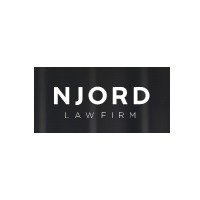Best Private Equity Lawyers in Copenhagen
Share your needs with us, get contacted by law firms.
Free. Takes 2 min.
List of the best lawyers in Copenhagen, Denmark
About Private Equity Law in Copenhagen, Denmark
Private equity (PE) refers to investment funds that directly invest in private companies or engage in buyouts of public companies, resulting in their delisting from stock exchanges. In Copenhagen, Denmark, private equity transactions have become an integral part of the city's dynamic financial landscape, enabling both local and international investors to participate in growth, turnaround, and buyout opportunities. The legal market in Copenhagen features an established ecosystem of specialized lawyers, investment professionals, and regulatory bodies responding to an increasingly sophisticated PE sector. Danish private equity law blends local regulatory requirements with European Union directives, focusing on investor protection, deal transparency, and robust governance frameworks.
Why You May Need a Lawyer
Private equity transactions are often complex and involve substantial legal, financial, and regulatory considerations. Here are common situations where you may require legal help:
- Deal Structuring: Legal advice is required to structure buyouts, venture capital investments, and other transactions in compliance with Danish and EU law.
- Due Diligence: Lawyers help assess and manage risks related to investments, target company liabilities, and regulatory obligations.
- Drafting and Negotiation: Agreements for share purchase, shareholder rights, and management involvement need careful drafting and negotiation.
- Regulatory Compliance: Compliance with financial regulations, competition (antitrust) rules, and sector-specific permissions require expert legal guidance.
- Cross-Border Transactions: International investments or funds introduce legal complexities involving multiple jurisdictions.
- Exit Strategies: Legal counsel is vital for preparing IPOs, secondary buyouts, or trade sales.
- Dispute Resolution: Disputes related to management, performance, or exit terms may need legal intervention.
Local Laws Overview
Private equity activities in Copenhagen are governed by Danish law and relevant European Union regulations. Key legal aspects include:
- Company Law: The Danish Companies Act regulates how companies are formed, operated, and transferred, which is highly relevant to private equity deals.
- Financial Regulation: The Danish Financial Supervisory Authority (Finanstilsynet) oversees fund management and investor protections. Alternative Investment Fund Managers (AIFMs) are regulated under both local law and the EU AIFM Directive.
- Taxation: Denmark offers attractive but highly regulated tax rules concerning withholding taxes, capital gains, and carried interest.
- Competition Law: Mergers and acquisitions in private equity often require notification to Danish or European competition authorities to prevent anti-competitive practices.
- Employment and Incentives: Danish employment law governs issues like employee stock options, management incentives, and post-acquisition restructuring.
- Cross-Border Compliance: Cross-border transactions may involve additional EU regulatory and notification requirements.
Frequently Asked Questions
What is private equity, and how does it work in Denmark?
Private equity in Denmark involves investments into private or unlisted companies, typically by specialist investment funds, often with the aim of restructuring, improving, or expanding the business before eventually selling it for a profit.
How are private equity funds regulated in Copenhagen?
Private equity funds are regulated by the Danish Financial Supervisory Authority and must comply with both Danish law and relevant EU rules, including the Alternative Investment Fund Managers (AIFM) Directive.
What are the main legal considerations for private equity investments in Denmark?
Key considerations include deal structuring, tax planning, regulatory compliance, due diligence, competition law, and protection of investors’ and managers’ rights.
Do I need approval from regulators for a private equity transaction?
Certain transactions, especially those involving acquisitions of large companies or firms in regulated sectors, may require notification or approval from Danish or European competition and regulatory authorities.
How is taxation handled for private equity funds and investors in Denmark?
Taxation can be complex. It covers income from carried interest, capital gains, and withholding taxes, with specific rules in place for both domestic and foreign investors. Professional legal and tax advice is recommended.
What are the typical structures used for private equity funds in Denmark?
Common structures include limited partnerships (kommanditselskab or K/S) and public or private limited liability companies (A/S or ApS), often chosen for flexibility, liability protection, and tax efficiency.
Can foreign investors participate in Danish private equity?
Yes, Denmark promotes an open investment climate. Foreign investors can participate, but they must comply with local and EU regulatory frameworks.
What are exit options for private equity investments?
Common exit routes include trade sales, initial public offerings (IPOs), and secondary buyouts. Legal counsel is necessary to structure exits efficiently and comply with all relevant regulations.
What is the role of a lawyer in a private equity transaction?
A lawyer advises on transaction structuring, conducts legal due diligence, drafts and negotiates agreements, ensures regulatory compliance, oversees closing, and manages disputes.
How do I choose the right private equity lawyer in Copenhagen?
Seek a lawyer or law firm with proven expertise in private equity deals, deep knowledge of Danish and EU law, effective negotiation skills, and a track record with both local and international transactions.
Additional Resources
Below are some resources for those seeking information or guidance on private equity law in Copenhagen, Denmark:
- Danish Financial Supervisory Authority (Finanstilsynet): Regulates financial markets and funds.
- Danish Business Authority (Erhvervsstyrelsen): Handles company registrations and compliance.
- Invest Europe: Industry body offering best practices and insights into private equity across Europe.
- Local Law Firms: Many Copenhagen-based law firms have dedicated private equity and venture capital teams.
- Danish Venture Capital and Private Equity Association (DVCA): Represents the interests of PE professionals in Denmark.
Next Steps
If you are considering or undertaking a private equity transaction in Copenhagen, Denmark, the following steps can help ensure you receive appropriate legal guidance and support:
- Define your goals and the type of transaction or investment you are considering.
- Gather all relevant information about the target companies or funds.
- Consult a lawyer or law firm specialized in private equity with experience handling transactions in Denmark.
- Discuss regulatory, tax, and structural issues at the outset to avoid delays or complications later.
- Engage your legal counsel for due diligence, negotiations, contract drafting, and regulatory compliance throughout the process.
- Maintain open communication with both your legal advisor and any relevant regulatory or governmental bodies.
Above all, early engagement with experienced legal professionals is the best way to navigate the complex legal landscape of private equity in Copenhagen, Denmark.
Lawzana helps you find the best lawyers and law firms in Copenhagen through a curated and pre-screened list of qualified legal professionals. Our platform offers rankings and detailed profiles of attorneys and law firms, allowing you to compare based on practice areas, including Private Equity, experience, and client feedback.
Each profile includes a description of the firm's areas of practice, client reviews, team members and partners, year of establishment, spoken languages, office locations, contact information, social media presence, and any published articles or resources. Most firms on our platform speak English and are experienced in both local and international legal matters.
Get a quote from top-rated law firms in Copenhagen, Denmark — quickly, securely, and without unnecessary hassle.
Disclaimer:
The information provided on this page is for general informational purposes only and does not constitute legal advice. While we strive to ensure the accuracy and relevance of the content, legal information may change over time, and interpretations of the law can vary. You should always consult with a qualified legal professional for advice specific to your situation.
We disclaim all liability for actions taken or not taken based on the content of this page. If you believe any information is incorrect or outdated, please contact us, and we will review and update it where appropriate.

















